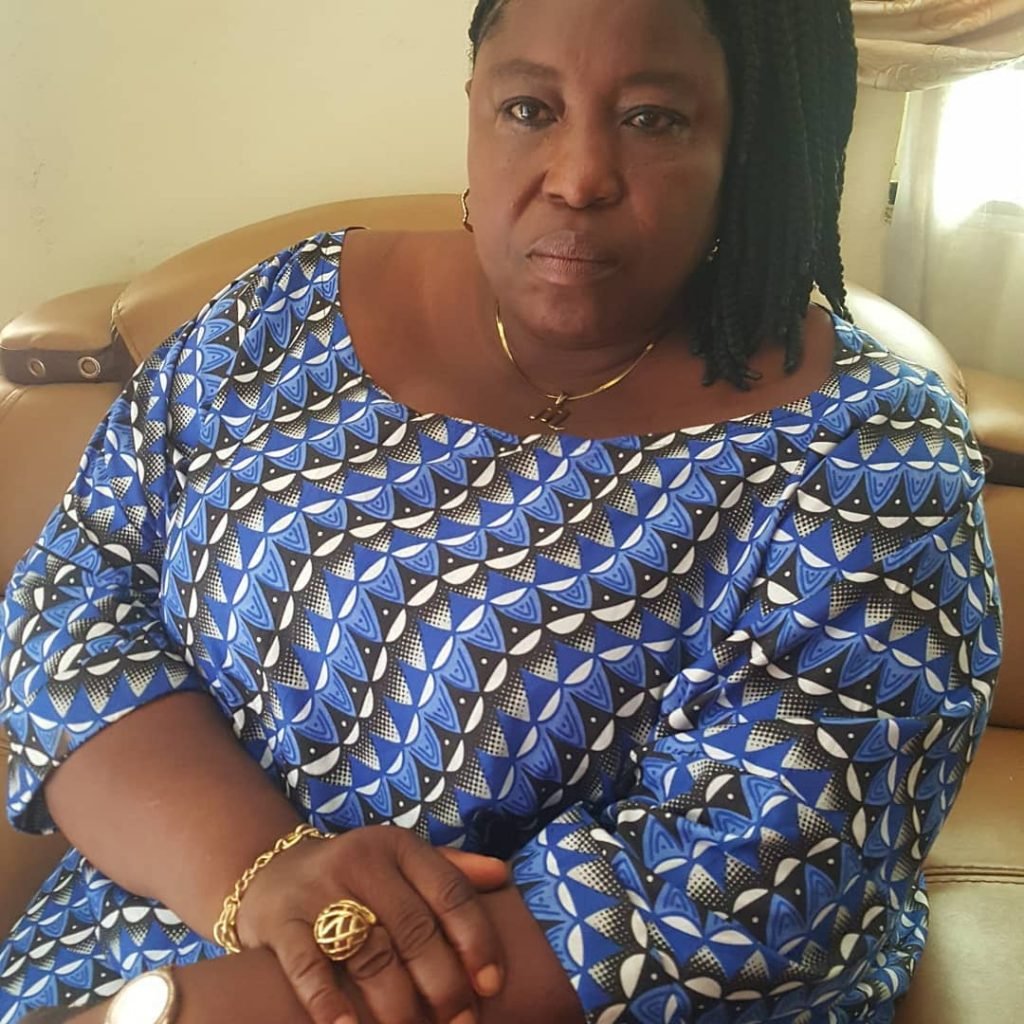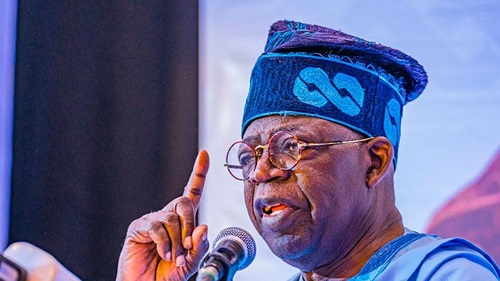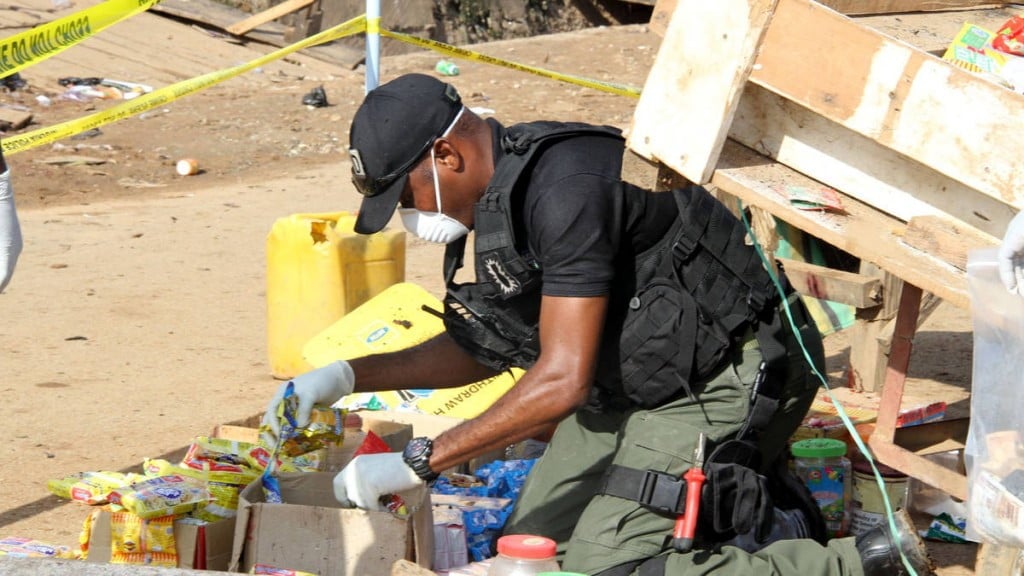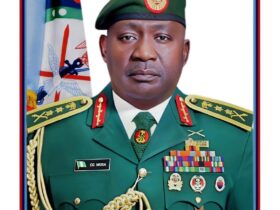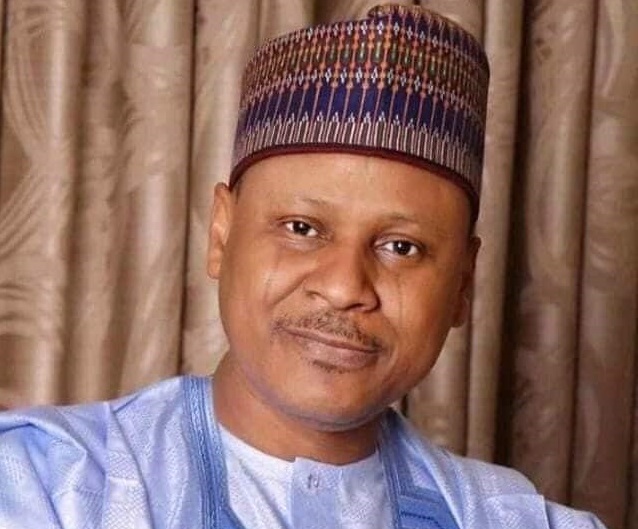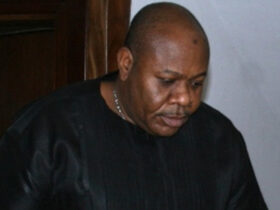…Says INEC can’t be compelled to transmit election results electronically
… FCT 25 percent votes is not mandatory
… Atiku, Obi head to S’Court
The Presidential Election Petitions Court on Wednesday upheld the victory of President Bola Ahmed Tinubu in the February 25,2023 general election.
In a unambiguous decision a five member panel of justices headed by Justice Haruna Tsammani held that the three consolidated petitions filed by Atiku Abubakar and Peoples Democratic Party PDP, Peter Obi and Labour Party LP and Allied Peoples Movement APM lacked merit.
The justices Haruna Tsammani , Justice John Adah , Justice Misitura Bolaji Yusuf , Justice Bolokuromo Moses Ugo and Justice Abba Mohammed also dismissed all the petitions .
After 13 hours judgement they upheld that the result as announced by Chairman of the Independent National Electoral Commission (INEC), Prof. Mahmood Yakubu, had on March 1, reflected the true votes casted .
Yakubu the National returning officer had returned Tinubu as the winner of the February 25 presidential election with 8,794,726 votes while Atiku and Obi reportedly scored 6,984,520 votes and 6,101,533 votes, respectively.
The Presidential Election Petition Court (PEPC) in its judgement struck out 17 paragraphs of the petition filed by Peter Obi and his Labour Party (LP) and held that the Constitutional provisions of 25 percent votes in Federal Capital Territory (FCT) is not mandatory for a presidential candidate who had 27 States.
PEPC said that the word “and ” used in the provisions of the statute means the FCT should be treated like other states of the Federation. According to the court,FCT residents have no special privileges as the petitioners claimed.
Ruling on the preliminary objections filed Independent National Electoral Commission (INEC), President Tinubu and the All Progressive Congress (APC) who had challenged the petition on the ground that the alleged malpractices were vague, Justice Abba Mohammed, stated that the petitioner prayers were not specific on the polling Units were the infractions were committed.”The paragraphs of the petition are vague and generic allegations.”
He therefore struck out the said paragraphs includes the testimonies of ten out of 13 witnesses that testified in favour of the petitioners.
PEPC said Obi and Labour Party (LP) made allegations in the affected paragraphs of malpractices and irregularities in the conduct of the election without providing specific details in support of the allegations.
Justice Mohammed who delivered the lead ruling on preliminary objections filed by the respondents against Peter Obi’s petition also upheld the Respondents’ contention that Obi’s petition alleged widespread irregularities without providing proof polling Units by polling Units.
The court said petitioners claimed that false election results were submitted without specifying which polling units were impacted.
He said that the petitioner also alleged over voting and rigging but did not specify the polling units, adding that the petitioners only made generic allegations.
According to the court, petitioners allege irregularities and say they will use spreadsheets, inspection reports, and forensic analysis as evidence in the trial.
But the documents promised by the petitioners were not attached to the petition served on the respondents.
The Justice Mohammed also ruled that Obi and the Labour Party did not adequately substantiate their allegations of corrupt practices, vote suppression, fictitious results, and other irregularities in their pleadings.
The court noted, for instance, that the petitioners failed to show which polling units the alleged malpractices occurred; the number of votes affected; and their polling unit agents who reported the alleged irregularities and malpractices, among others.
However, the court rejected the respondents’ argument that Obi was not a member of the LP at the time of the election, noting that membership is an internal affair of a political party who has the sole power to determine who its members are.
The court added that it did not lie with the respondents to question Obi’s membership of the LP.
The court also faulted the contention that Atiku Abubakar and the Peoples Democratic Party (PDP), who came second in the election, were necessary parties that ought to be joined in the petition.
According to the court ,”Respondents to the election petition are the electoral body that conducted the election and the winner, not the loser.”
But the court agreed with respondents that the averments in a pleading must be specific and not general.
“The Law is very clear that where someone alleged irregularities in a particular polling unit, such person must provide proof of particular irregularities in that poling unit for him to succeed in his petition, said the Tribunal.
In his ruling, presiding Justice Haruna Tsammani rejected the European Union report as secondary evidence .He said the report was not a certified true copy, therefore inadmissible in evidence.
Equally, declared inadmissible is the report of Data analyses presented by LP through a witness and evidence of the party expert witness . Justice Tsammani said both evidences were inadmissible because those two witnesses are interested persons in the matter.
On the contention that President Tinubu is a convict having been fine $460,000
US Dollars by US court, PEPC said the fine was not a factor for disqualification being a civil forfeiture proceeding.
The court therefore held that Tinubu and Vice President Kashim Shettima were qualified to have contested the last presidential election.
PEPC held that Tinubu was not disqualified by the fine imposed on him by a United States court because it was “not a criminal trial , he was not charged or arraigned before any court in United States.”
The court further held that the fine imposed by the US court did not qualify as a fine for fraud or dishonesty provided in Section 137(1)(d) of the Constitution.
It added that the petitioners evidently failed to prove their case that Tinubu was disqualified by virtue of the decision of the US court, adding that Obi and the LP did not comply with the requirement of Section 249(1) and (2) of the Evidence Act in proving conviction outside the country.
It added that even if it was to be a criminal case, Section 137(1)(e) of the Constitution, such conviction or fine must be within 10 years for person to be disqualified.
On electronic transmission of elections results, Justice Tsammani said that (INEC) cannot be compelled to transmit result electronically.
The court further held that the petitioner, labour party can not raise the issue of electronic transmission of result because it has not appeal an unfavourable judgement of the federal high court on the issue, adding that the decision is biding.
Presiding Justices Tsammani said that besides the decision of the federal high court neither the electoral Act 2022 nor INEC manual provided for electronic transmission of election results.
“Nothing in the Electoral Act 2022 states that BVAS should be used to transmit election result” he said.
The court said INEC has elated to transmit result manually from the polling unit to the ward collation centre, then from ward to local government, from local governments to state and finally to the National collation centre.
The court also held that the petitioners failed to prove that system was deliberately programmed by INEC to manipulate or to rig the election.
The judgement was delivered amidst a very tight security mounted by security agencies one kilometre around the Court of Appeal Abuja Central District, venue of the President Election Petitions Court




